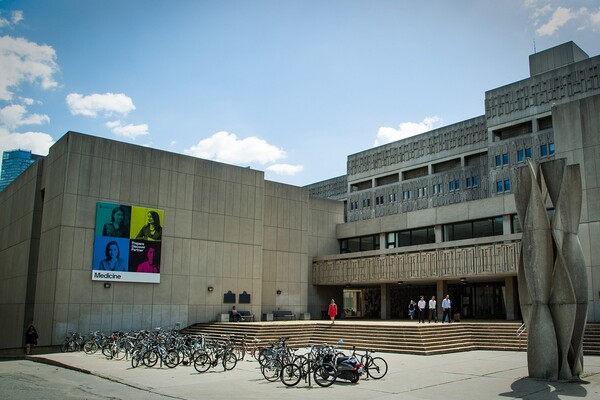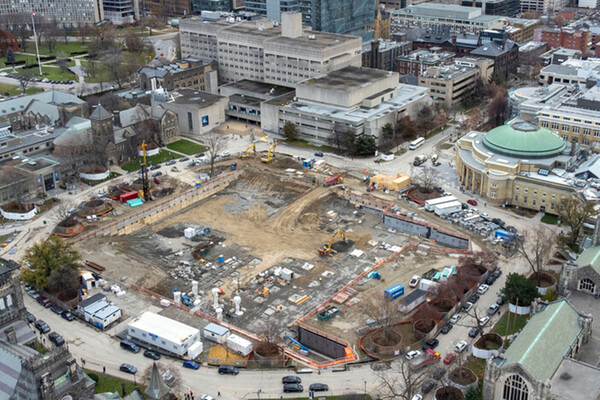Equity, Artificial Intelligence & Social Policy: Incoming MD Students Share Why They’re Passionate About Medicine
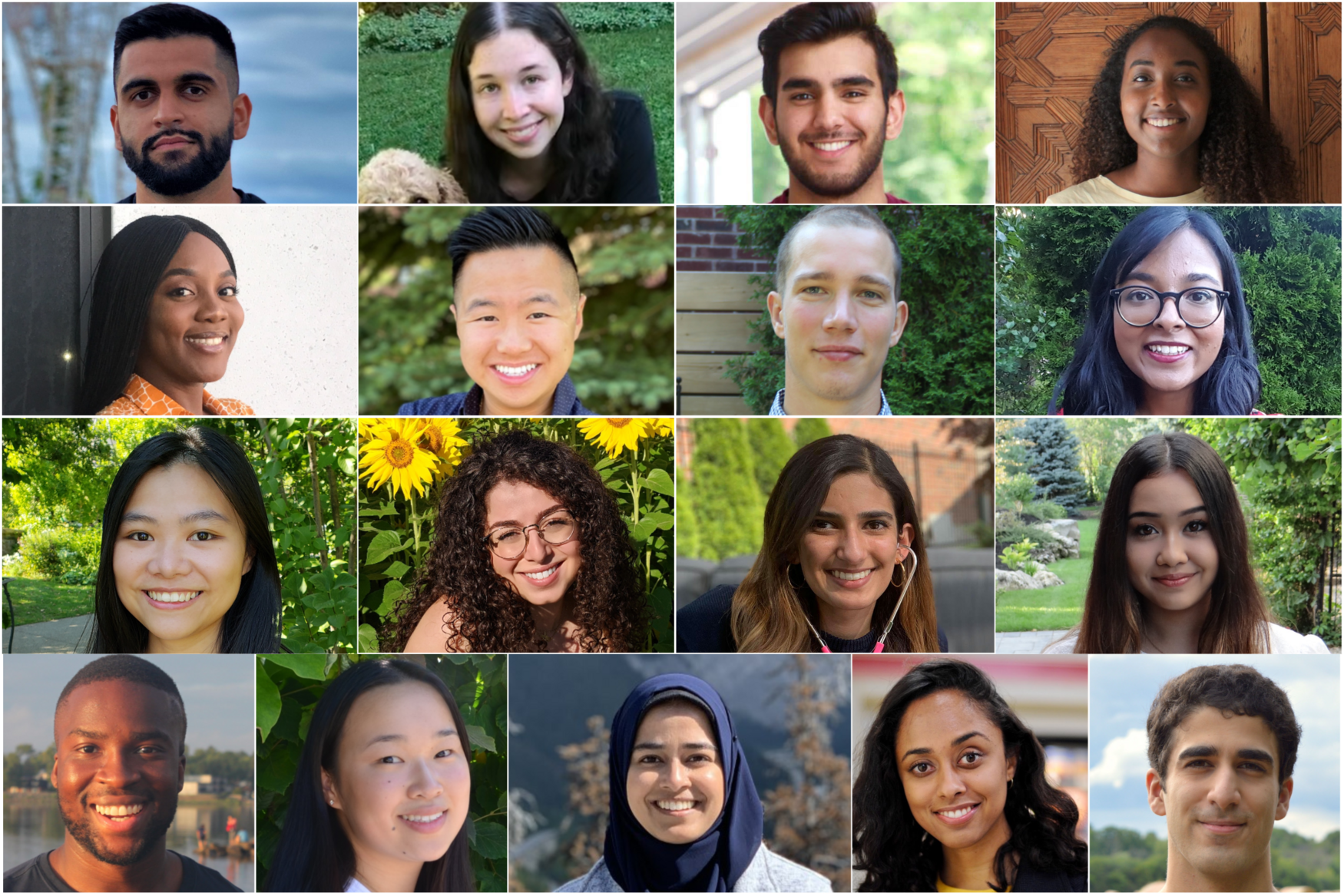
Julia Soudat
As our newest MD students from the Class of 2T4 prepare to start their medical school journeys, they reflect on what made them want to become physicians and what aspects of medicine they’re most passionate about.
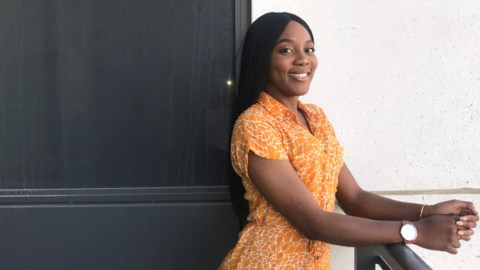
Sonia Igboanugo
From a very young age, I was curious about humanity. I was intrigued by the human body, particularly how it functioned and how it was impaired. Amid my reflections on things like how immune cells work were questions about why poverty exists. I knew early on that I wanted to serve society at the intersection of such questions. As I progressed through high school, I gravitated towards many of the biological and social sciences but I didn't know where these interests could take me until I attended the Summer Mentorship Program (SMP) at U of T. The SMP changed my life. As we observed and learned about a multitude of health-related careers, I was captivated by the role of a physician.
I went on to pursue a STEM degree in university and immersed myself in clinical settings and community leadership roles which affirmed my interest in medicine. One influential experience for me was working with and shadowing an inner-city physician. In his role, he cared for many patients from marginalized backgrounds, and I was moved by the compassion and empathy he displayed in each clinical encounter. I loved that doctors proactively consider the social determinants that shape a patient’s health both inside and outside clinical environments through advocacy.
My faith has always fuelled my passion to care for all people, especially those at the margins of society. As a Black aspiring physician, I was drawn to the health inequities faced by the Black community. A significant portion of my undergraduate career was spent advocating for increased representation and diversity in medicine because very often, underrepresented communities are underserved. My community service involvement afforded me the privilege to listen to previously incarcerated women re-tell the challenges they faced in accessing care as they reintegrated into society. These experiences drive my passion for improving access to healthcare services in marginalized communities. Moreover, my academic background studying biomedical discovery & commercialization birthed a passion for health innovation which I hope to leverage in my medical career as I continue advocating for health equity.
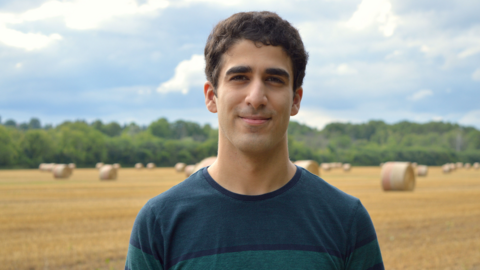
Nickrooz Grami
All my life, both my grandmothers – now 99 and 90 years old – have been living with my family and have had their share of illnesses. By helping my parents take care of them, not only did I understand the importance of health and its impact from an early age but I also gained a great affinity for caring for others. This life experience combined with keen interests in problem-solving, human biology, and medical technology drew me into the field even further. Once I started investigating the profession and saw how deeply physicians could impact people and the world, I knew that this is what I wanted to do for the rest of my life.
I am really passionate about harnessing the power of technology to improve diagnostics and patient outcomes. I think we’re at a crossroads in medicine. Never before has there been so much medical technology that healthcare professionals can use to improve the health of their patient population. During my undergrad, I had the privilege of researching with large genetic datasets coming from across the globe. My experience helped me realize that with the development of technology, we can gather information, analyze it, and detect patterns that can uncover new mechanisms of disease, systemic health issues, and gaps in healthcare quality and equity.
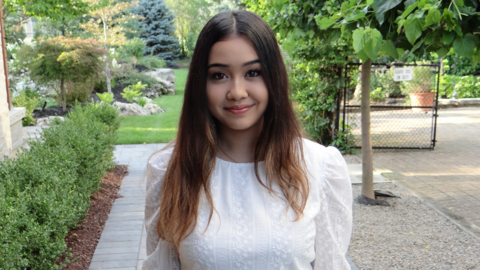
Sandra Sabongui
Growing up, I was fascinated by the natural sciences. I was always curious about the world around me and knew that my love for learning would be integral to my future career choice. I began considering different careers in high school, and had the opportunity to shadow a family physician at his clinic. Although he had a busy practice, he dedicated a few days a month to the care of transgender patients. I quickly noticed how empathetic he was towards his patients, and admired his dedication to caring for this them. I began to realize the impact physicians can make when it comes to helping marginalized patient groups. During my undergraduate degree, I worked as a summer research student at St. Michael’s Hospital. I worked under the supervision and mentorship of two outstanding physician-scientists at the hospital, who demonstrated to me how a career in research can be coupled with excellent clinical skill to make a difference in the lives of patients. These two experiences, along with many others, showed me how rewarding a career in medicine can be, and made me sure that medicine was the only choice for me.
Right now, I’m very passionate about equity in medicine. When I shadowed the physician I mentioned earlier, I learned a lot about the struggles that transgender and non-binary patients face with regards to access to healthcare and discrimination. I want to be an advocate for marginalized patient groups and believe that diversity should be reflected in medical education and training in order to promote equity. For example, incorporating LGBTQ+ health training into the medical curriculum can help address disparities by ensuring that future physicians understand this population's unique needs and health risks. I hope that I can be involved in advocating for these changes at U of T.
Another thing I’m really passionate about is teamwork and interprofessional collaboration. I recently joined a research team for a clinical trial on PCSK9 inhibitors and stroke prevention. We are still at the beginning of the organization and planning phase of the project, but it has been eye-opening to witness the extensive collaboration required thus far, and the diverse backgrounds of those involved. I’m looking forward to working within more diverse team settings as I begin my MD/PhD studies.
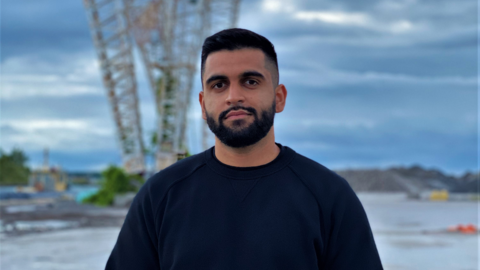
Harsh Naik
A lot has happened that has led me to pursue medicine and want to become a doctor. But the main thing that has continued to drive me to pursue becoming a physician are the inherent leadership and advocacy roles that I believe all physicians should embody. Physicians have a privileged role in society. And we must continuously use our power and privilege to care for everyone using an equity lens and to advocate for marginalized folks in our communities. COVID-19 has only highlighted the importance of this. Once again, a crisis has disproportionately impacted marginalized communities – Black and Indigenous folks and other people of colour, low-income earners, people experiencing homelessness, and people living with a mental illness. Whether it be a virus, anti-Black and anti-Indigenous racism, or any systemic issue, we can help individuals who are at risk. But it is more impactful to change the system in order to improve the health of the entire community. As Michel Foucault once said, “the first task of the doctor…is political." I take the remaining words from his quote one step further: the struggle against disease begins with a war against bad systems. People will only be cured if they are first liberated from such systems.
Being from Toronto, I have seen the truths and fallacies of Toronto’s praised multiculturalism. We are a diverse city, but we also have many significant problems and challenges that need to be addressed. I’m looking forward to joining the University of Toronto and all the progress that has been made so far at the school. But I am also looking forward to identifying where the school is still trailing and how we can address these problems so the Faculty can be a more accessible level of education for anyone looking to become a physician.
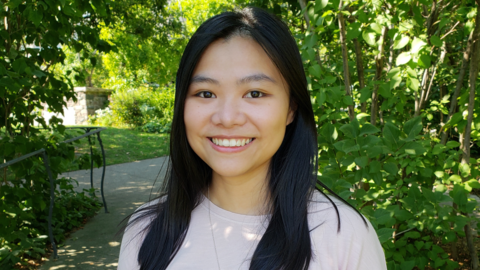
Tszying So
My interest in medicine began with my family’s past experiences with barriers in accessing healthcare as immigrants. Despite these challenges, we were lucky to have had wonderful physicians who made tremendously positive impacts on my own and my family’s well-being. Later on, I realized how fascinated I was by biology and human health which led me to pursue undergraduate studies in Pathobiology and Immunology. I also sought out more experiences in community advocacy, medical research, and volunteering at hospitals, all of which helped confirm my aspirations in becoming a physician. My background in education also led me to become more interested in the role that physicians play in educating their patients and the general public to prevent and manage disease.
There are many aspects of medicine that I’m passionate about. One in particular is immigrant and refugee health. Language, cultural and political barriers often pose significant challenges for newcomers to access health care, resulting in poorer health outcomes. As someone who has experienced some of these challenges, I look forward to further exploring this aspect of medicine so I am well prepared to support this population in the future. Especially given Canada’s highly diverse and multicultural population, it is crucial that physicians develop the cultural knowledge and sensitivity to address these barriers so everyone can feel safe, welcomed, and included.
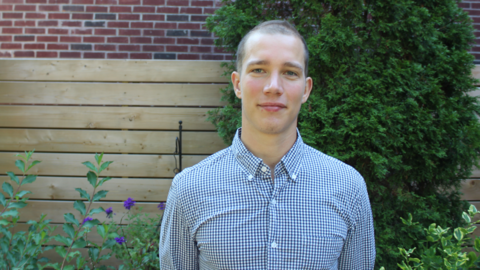
Kalter Hali
The work of a physician combines different interests of mine - the constant pursuit of answers for questions regarding the complexities of human physiology, working in a goal-driven environment that strives to have a direct positive impact on the members of its community and creating meaningful relationships with others, whether that is with patients or members of the healthcare team. Furthermore, as a physician you have the unique opportunity to lead innovative and translatable research with the potential of expanding medical knowledge and ultimately benefiting patients all over the world.
In recent years, we have seen cases of chronic disease skyrocket, especially in communities of lower socioeconomic status. I believe healthcare practitioners have the ability to advocate for members of their community through influencing policy makers and leading outreach programs that increase the availability of resources that enable healthier life choices for everyone. It is imperative we create a society in which all members have the opportunity to take a proactive approach to their health, as opposed to a reactive one.
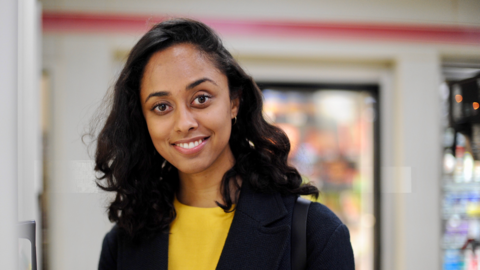
Kenya Costa-Dookhan
For a while, I considered studying engineering but realized the potential for advocacy and forming connections within medicine aligned more with my values and passions. To me, being a physician is the best way to combine my curiosity and compassion for others and allows me to constantly be learning about the world and those around me.
Mental health and social determinants of health are two aspects of medicine I am currently most passionate about. In my opinion, these areas are critical and often interrelated aspects of holistic well-being. My passion for these areas comes from having just completed two years of working with patients who have psychotic spectrum disorders through my MSc and seeing the strides that have been made – but also the gaps that remain in clinical care and research. There is such a complicated interplay between mental and physical health for these patients which is influenced by social determinants of health.
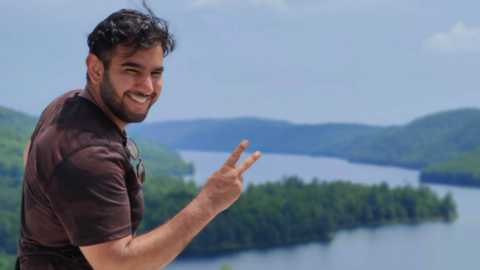
Ali Butt
Interestingly enough, I always wanted to become a police officer because I believed in doing what was just, moral, and right. However, life experiences where I felt helpless in family emergencies made me re-evaluate my career path and I knew medicine was my calling. After my father suffered a stroke and my sister was hospitalized for a month, I started to further understand how illness can affect a family’s emotional and financial well-being. Hoping to become more knowledgeable and empower others, I started to serve my community as an Advanced Medical First Responder with St. John Ambulance and enlisted in the Canadian Armed Forces as a Medical Assistant. Through these experiences and many more, I realized over time that becoming a physician is what I am meant to be.
I am passionate about family and emergency medicine. I find great reward in providing care to a family or community and bringing a sense of stability for individuals during times of crisis. Lastly, I am passionate about global health and I hope to help serve the homeless, refugees and veterans. I have found that while interacting with these groups, I relate to them on a deeper level and therefore would love the opportunity to try and deliver them the care they deserve.
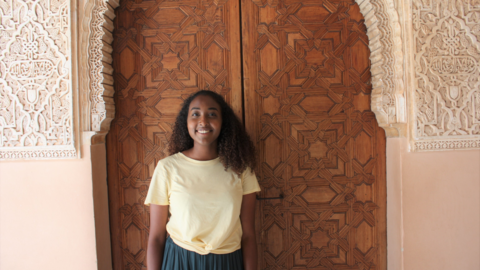
Samira Adus
As a child, I wanted to be a fashion designer. That evolved into a multitude of other professions, namely a writer, teacher, and ultimately a doctor. I am the first person in my extended family to become a physician, meaning that I was not exposed to many physicians growing up. When travelling abroad as a teen, I had the opportunity to firsthand see how privileged we are in our healthcare system in comparison to the countries that I had visited. This led to a desire to rectify that inequality. Soon after, I began working in affiliation with the Canadian Red Cross, researching their Emergency Response Unit and dreaming to one day, take part in global humanitarian efforts. However, I don’t believe that wanting to become a physician is an isolated decision, it’s dynamic and everchanging. For me, all the experiences that I have had along the way have further reminded me that I’m on the right track. Each encounter with the health care system itself, and the emotions that I’ve felt both as a racialized patient and as a caregiver to my late father are reminders of why this path is for me.
Medicine is such an all-encompassing field that’s rapidly changing. I am very passionate about the role that research has in improving and innovating the field, not just from a biological and treatment standpoint, but in better understanding physician-patient communication, hidden biases, and other factors which influence the day-to-day care that patients receive. I am passionate about focusing on how to continuously improve these soft-skills, to provide better and well-deserved care to all.
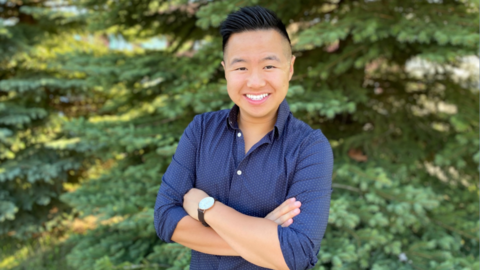
Hunster Yang
The more acquainted I get with our healthcare system, the more conspicuous its inequities seem. From listening to the lived experiences of diverse community members to working with them to tackle the numerous healthcare barriers that they face, my passion lies in working towards health equity for all. As a physician, I will be able to listen, learn, and collaborate alongside patients and communities to provide culturally competent, patient-centred care that they deserve, though they may not have been receiving. I will be able to evoke that hands-on change on the ground, providing comfort and healing to communities holistically in the manner that they’d like to be supported. Further, I would be ideally situated to utilize my research and clinical experiences to inform systemic changes through policy, all while connecting with my patients meaningfully at the individual level. Through medicine, I aim to continue to advocate and serve alongside diverse communities to achieve health equity in Canada and across the globe.
At the moment, I’m interested in pediatrics, family medicine, and public health. My interest in pediatric care comes from my experiences of working with children and youth for over eight years in various capacities, including facilitating workshops, engaging with youth on the spectrum, tutoring students one-on-one, and teaching in a classroom. It also comes from collaborating directly with youth. Co-launching the Institute for Youth Health and Development (IYHD), a youth-led non-profit organization to improve the health of racialized, immigrant, and refugee youth in Toronto, has provided me with incredible opportunities to work with the youth, learn from them, and see them grow each week. Additionally, with my passion for health equity and community engagement, these two align perfectly with family medicine and public health, allowing me to work alongside patients and communities, build meaningful connections, and inform systemic policy. I’m excited to continue learning about the different aspects of medicine as I venture into my medical school journey!
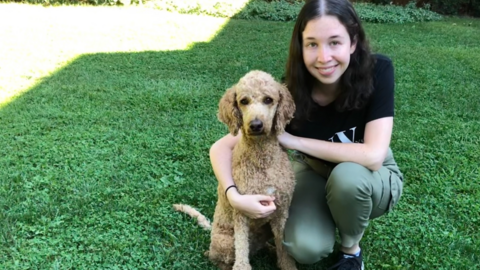
Vienna Mazzoli
My interest in becoming a physician began with a passion for science in elementary school. During high school, I worked on a research project in the area of immunology under the supervision of Dr. Reginald Gorczynski, here at U ofT . Through research, I had the opportunity not only to ask all the questions I had, but also to work towards answering some of them. After this, I knew I wanted research to be a part of my life. From research projects in immunology to statistical learning, I learned that problems in medicine are addressed through research. I was drawn to U of T's MD/PhD program because physician-scientists can gain a first-hand view of what is needed to improve patient health and also be involved in the search for solutions through their research. Physicians have the opportunity to impact individual patients and families during some of their most difficult times, while research can impact entire populations, and I am excited and grateful to have the opportunity to be involved in both of these aspects of medicine.
I am very interested in the use of machine learning in medicine. Machine learning has the potential to further expand on human capabilities by detecting patterns and revealing insights from large, multi-modal medical datasets that cannot be manually analyzed. I think that this is especially exciting for the improvement of personalized medical treatments and care plans because many heterogeneous parameters can be incorporated into predictive models. I am looking forward to seeing the advancements in this field over the next few years and hope to work in this area during my PhD studies.
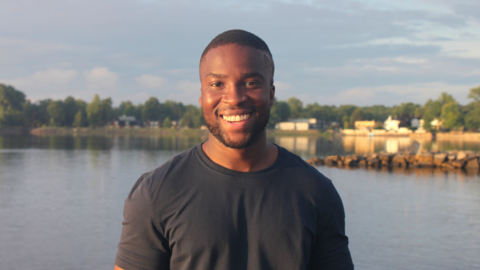
Kwame Agyei
I spent my formative years undergoing numerous surgeries to correct a medical error and witnessed an amazing team of healthcare professionals completely change my life. At the time, I felt medicine wasn't an option due to its intensity and the fact that I never saw a medical professional who looked like me. In university, my perspective changed as I got to integrate my passions for chemistry and physiology in co-op placements. My experiences solidified my love for the theoretical aspect of science and showed me how awesome it is to use this knowledge to positively impact people's lives. Most importantly, I learned that it's not what I look like that defines my ability to pursue medicine, but rather my desire to adapt to the ever-evolving role of a physician to best serve my community.
I am very passionate about the potential applications of artificial intelligence in medicine. While its implications are widespread, I am more interested in its ability to allow physicians to better tailor their interactions and deal with the psychosocial aspects of medicine that can often be neglected.
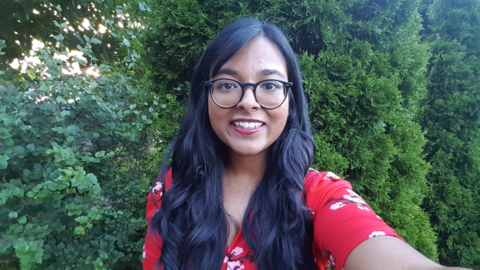
Shinthujah Arulanantham
As a child, I remember being fascinated every science class by not only what I had just learnt but also by the wealth of knowledge that there was yet to uncover and learn. I felt the same sense of wonderment during a second-year Physiology course during my undergrad that sparked my interest in human body systems and disease. Similarly, my research experiences reignited my love for investigation and experimentation. Alongside my educational pursuits, I was fortunate to have been apart of memorable experiences with patients and physicians at hospitals, long-term care homes and conferences that showcased to me the privileged opportunity physicians have to be healers, mentors, and advocates. I recognized that my interests in human health coupled with my desire to be a lifelong learner, a researcher, and to support patients in their time of need were all facets of being a physician.
As a young child, I had the opportunity to visit rural areas of Sri Lanka and India where I firsthand witnessed the obstacles locals faced in accessing healthcare. These early experiences have fueled my passion for health equity and advocacy on healthcare disparities on a local and global front.
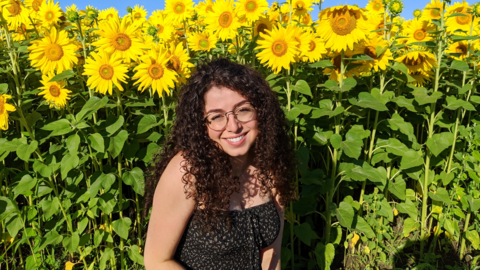
Rahna Rasouli
Growing up, I was very bothered by the inequalities I saw around me, which led me to later do a lot of work with marginalized populations. I worked with children with autism, at-risk students, older populations, women, and immigrants. It was so fulfilling, and I couldn’t imagine a career without that unique human connection and advocacy. Also (like almost every other medical student) I fell in love with the complexity of human life. I really explored my interests during undergrad through research and found a passion for both augmented biology and music, which don’t seem to fit together at face value but come together in a unique way in medicine. Along the way, I’ve had so many amazing mentors and role-models that showed me the diversity of medicine, and really solidified my passion for it. It’s a career where I can have genuine human connection, advocate for people, actively use art and science, and be openly curious every day. I couldn’t imagine anything better!
I’m passionate about the aspect of long-term patient care and connection, especially in marginalized populations. It’s such an honour to play a part in making people feel heard and cared for in their most vulnerable state and to make medicine accessible to all. I think this passion is fuelled by both the highs in my life (my amazing mentors that have made me feel heard and cared for) and the lows (the times where I’ve felt that systems weren’t accommodating of my family and I). I’m also really passionate about creative medical innovation. Medicine is truly unique in the way that science, technology, arts, and humanities are all combined to create novel treatments. I’ve enjoyed exploring the intersection of technology, music, and medicine during undergrad, and I can’t wait to see what else is in store!
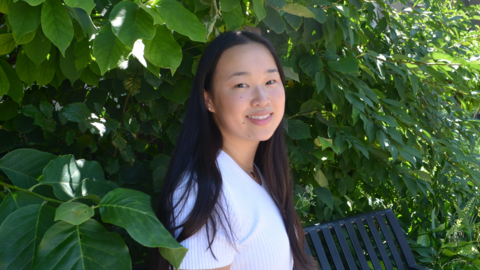
Sabrina Wang
When I was fifteen, I received an emergency appendectomy after an entire day of competing at a provincial swimming competition with severe pain. As an athlete, I was used to pushing through the pain and being mentally tough during injury recovery. However, I never expected the challenging and frustrating series of hospitalizations and post-surgery complications that ensued. Amidst the chaos and unpredictability, the physicians and healthcare team supported me endlessly and gave me hope as a recovering young athlete. During this difficult time away from swimming, I developed a fascination in research and healthcare while learning more about my appendicitis complications and interacting with the physicians at the hospital. I soon began biomedical research in grade 12 and started to gain exposure in various clinical settings around the world. My personal lived experiences with illness allowed me to better empathize and care for other patients, and it continually fuels my desire to improve health through translational research. I want to become a physician, where I can use my personal, research and clinical experiences to provide better patient-centered care while transforming the future for medicine.
I am passionate that medicine brings the opportunity for evidence-based practice and patient advocacy. I worked on research with Dr. James Dowling at SickKids where we made discoveries in his lab that provide more evidence-informed care in his clinics and around the world. We use zebrafish to model various rare congenital myopathies, screen for drugs, and begin clinical trials to isolate the best treatments. I also shadowed obstetrician/gynecologist Dr. Wang from Michigan, where we collaborated with each patient and learned from their experiences. I learned the importance of advocating for financially accessible and culturally sensitive care. After seeing the positive impact that these experiences had on patient outcomes, I hope to continue these passions in medical school where I have more opportunities to conduct translational research and advocate for patients.
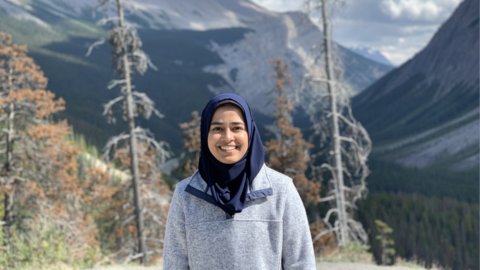
Hafsa Zia
I’ve always had an interest in the inner workings of the human body, particularly developmental biology, but there are many different career paths I could have aspired towards based solely off that - like becoming a professor. I chose medicine because I realized what I valued and wanted in a career. I find joy and fulfilment in connecting and building relationships with people which is an essential component of being a good doctor - building a patient-doctor relationship. As a doctor you get to have meaningful interactions with people and genuinely make a difference in their lives. The field of medicine always strives towards better patient outcomes and managing diseases. That means there’s always something new to learn. I love the concept of life-long learning to further my knowledge and share it to help empower others.
The aspect of medicine I feel the most passionate about is how a group of undifferentiated cells transform into a living, breathing baby. I became interested in this niche after taking a developmental biology course during undergrad. The whole process from conception to birth is beyond fascinating because there is so much that could go wrong, and unfortunately it does at times, but for the most part this process has been perfected. From the way different genes are controlled, the way they interact, the crucial role protein gradients play, the way protein gradients are created, the way cells differentiate, the way organ are formed, etc. It's incredible. One of my favourite fun facts is that fruit fly larvae (Drosophila melanogaster) essentially carry a ball of cells around with them that go on to form almost all their adult structures. In terms of research, there is so much potential to understand and help individuals with congenital disorders.
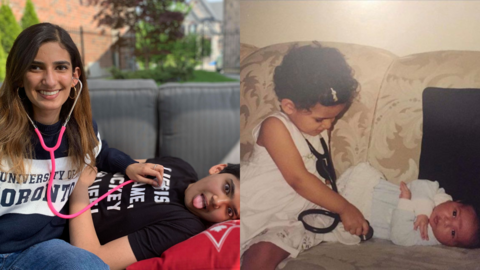
Yasmeen Razvi
There were a lot of things that made me want to become a physician, but I think that it was my dad who first set me on my course. I was born while he was in medical school, so I got to see him move throughout his career as a physician. When I was younger, I used to love playing with his stethoscope and would pretend my younger brothers were my patients (not sure they enjoyed that as much as I did). As I got older, I began to have a better appreciation for his work and the fulfillment it gave him. He's done relief work in Jordan and Haiti and its something that has always inspired me to do something similar. So I would say that while there were a lot of things that made me want to become a physician, the pride that I have in seeing my dad's work was a big factor for me.
Environmental and social justice are very important to me. I think that the climate crisis, marginalized status, and health are inextricably linked. Climate change will be one of the biggest determinants of human health in the coming years and much like with COVID-19, communities of colour will be disproportionately impacted. I am currently part of a group of students advocating for climate and social justice in the Region of Peel, which is something that I hope to continue in my professional career. I think physicians have unique position of privilege to be able to advocate for their patients in so many ways.
News

